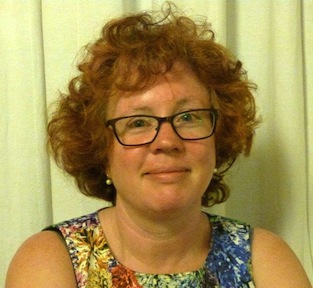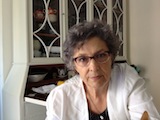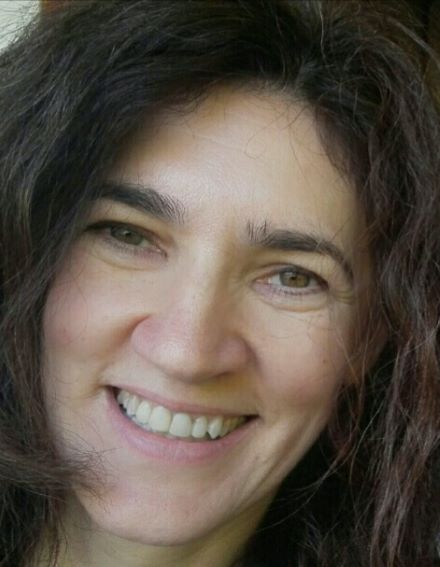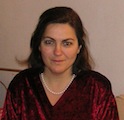Studying at the University of Verona
Here you can find information on the organisational aspects of the Programme, lecture timetables, learning activities and useful contact details for your time at the University, from enrolment to graduation.
Academic calendar
The academic calendar shows the deadlines and scheduled events that are relevant to students, teaching and technical-administrative staff of the University. Public holidays and University closures are also indicated. The academic year normally begins on 1 October each year and ends on 30 September of the following year.
Course calendar
The Academic Calendar sets out the degree programme lecture and exam timetables, as well as the relevant university closure dates..
| Period | From | To |
|---|---|---|
| I semestre | Oct 1, 2013 | Jan 11, 2014 |
| II semestre | Feb 24, 2014 | May 31, 2014 |
| Session | From | To |
|---|---|---|
| Lingue - sessione invernale | Jan 13, 2014 | Feb 22, 2014 |
| Lingue - sessione estiva | Jun 3, 2014 | Jul 26, 2014 |
| lingue - sessione autunnale | Sep 1, 2014 | Sep 29, 2014 |
| Session | From | To |
|---|---|---|
| tesi laurea | Mar 31, 2014 | Apr 2, 2014 |
| tesi laurea | Jul 9, 2014 | Jul 11, 2014 |
| Period | From | To |
|---|---|---|
| VACANZE PASQUALI | Apr 17, 2014 | Apr 22, 2014 |
| Festa della Liberazione | Apr 25, 2014 | Apr 25, 2014 |
| Festa dei lavoratori | May 1, 2014 | May 1, 2014 |
| Festa del S. Patrono S. Zeno | May 21, 2014 | May 21, 2014 |
| Festa della Repubblica | Jun 2, 2014 | Jun 2, 2014 |
Exam calendar
Exam dates and rounds are managed by the relevant Foreign Languages and Literatures Teaching and Student Services Unit.
To view all the exam sessions available, please use the Exam dashboard on ESSE3.
If you forgot your login details or have problems logging in, please contact the relevant IT HelpDesk, or check the login details recovery web page.
Academic staff
 birgit.alber@univr.it
birgit.alber@univr.it
 cinzia.delotto@univr.it
cinzia.delotto@univr.it
 Paul.Kahl@phil.uni-goettingen.de
Paul.Kahl@phil.uni-goettingen.de
 sara.paolini@univr.it
sara.paolini@univr.it
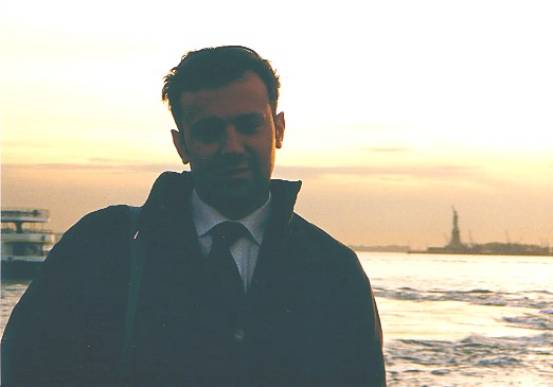
Zaccarello Michelangelo
 michelangelo.zaccarello@univr.it
michelangelo.zaccarello@univr.it
 +39 045 802 8330
+39 045 802 8330
Study Plan
The Study Plan includes all modules, teaching and learning activities that each student will need to undertake during their time at the University.
Please select your Study Plan based on your enrollment year.
1° Year
| Modules | Credits | TAF | SSD |
|---|
2° Year activated in the A.Y. 2014/2015
| Modules | Credits | TAF | SSD |
|---|
3° Year activated in the A.Y. 2015/2016
| Modules | Credits | TAF | SSD |
|---|
| Modules | Credits | TAF | SSD |
|---|
| Modules | Credits | TAF | SSD |
|---|
| Modules | Credits | TAF | SSD |
|---|
| Modules | Credits | TAF | SSD |
|---|
Legend | Type of training activity (TTA)
TAF (Type of Educational Activity) All courses and activities are classified into different types of educational activities, indicated by a letter.
English III (2015/2016)
Teaching code
4S00887
Teacher
Coordinator
Credits
9
Also offered in courses:
- English III of the course Bachelor's degree in Foreign Languages and Literatures
Language
English
Scientific Disciplinary Sector (SSD)
L-LIN/12 - LANGUAGE AND TRANSLATION - ENGLISH
Period
II semestre dal Feb 22, 2016 al May 31, 2016.
Learning outcomes
English language and non verbal communication
We will analyze the relationship between language and non verbal contexts
Program
Final program -- May 17, 2016
***ESSAYS AND BOOKS
Argyle, Michael, “Is Nonverbal Communication a Kind of Language?”, ETC, Summer 1989, pp. 158-162
Ekman, Paul, Emotions Revealed. Understanding Faces and Feelings , New York, Times Books 2003 (Te lo leggo in faccia. Riconoscere le emozioni anche quando sono nascoste, Torino, Amrita 2008)
Ekman, Paul http://greatergood.berkeley.edu/article/item/are_facial_expressions_universal
Giroux, H., “Terrorizing the Self. Selfie Culture at the Intersection of the Corporate and the Surveillance States”, Truth-Out FEBRUARY 6-8, 2015, http://www.counterpunch.org/2015/02/06/selfies-at-the-intersection-of-the-corporate-and-the-surveillance-states (Italian translation available at http://www.iperstoria.it/joomla/images/PDF/Numero%205%20giusto/traduzioni_inediti/intervista_giroux_int.pdf )
Hall, Edward T., The Hidden Dimension , New York, Anchor Books 1969. ONLY chapters 5, 6, 9, 10, 11 and 12 (volume available at the Frinzi library, both in English and in Italian)
Lyman, S. M. and Marvin B. Scott, “Territoriality: A Neglected Sociological Dimension”, Social Problems, Vol. 15, No. 2 (Autumn, 1967), pp. 236-249
Matsumoto, D., “Paul Ekman and the legacy of universals”, Journal of Research in Personality 38 (2004) 45–51
Prabhu, T. “Proxemics. Some Challenges and Strategies in Nonverbal Communication”, The IUP Journal of Soft Skills 4 (3), 2010, pp. 7-14
Watson, O. Michael, Proxemic Behavior. A Cross-Cultural Study, The Hague, Mouton 1970. ONLY chapters 2 and 5
***Videos
Romney & Obama Body Language https://www.youtube.com/watch?v=j53kLmQUpWo
Deception Analysis - Hillary Clinton Body Language Cluster https://www.youtube.com/watch?v=iciIWswQJCg
Secrets of Body Language – Documentary http://topdocumentaryfilms.com/secrets-of-body-language/
Linguaggio del corpo del presidente Clinton http://www.youtube.com/watch?v=3fE28XMjU18
Face to Face, video in 3 parts available at:
https://www.youtube.com/watch?v=6uABMfsUFls
https://www.youtube.com/watch?v=GQeKJksBezA
https://www.youtube.com/watch?v=OY8kDXYOI6w
Paul Ekman, PhD: Compassion and Emotion http://www.youtube.com/watch?v=46SiUAd35iA
Dr. Paul Ekman on Expression and Gesture and Their Role in Emotion and Deception - Part 1 http://www.youtube.com/watch?v=J9i-9_QuetA
Dr. Paul Ekman on Expression and Gesture and Their Role in Emotion and Deception - Part 2 http://www.youtube.com/watch?v=b_tlSAccoWU
Proxemics http://proxemics.weebly.com/types-of-proxemics.html
http://www.jannilla.se/tag/facial-expressions/ (recognizing facial expressions)
http://greatergood.berkeley.edu/ei_quiz/#20 (recognizing facial expressions)
--------------------------------------
***PHOTOS: each student must bring to the exam 10 photos of her/his choice, to be analyzed according to the theories of proxemics and/or Ekman on emotions
--------------------------------
***URLs no longer available must be reported via email to roberto.cagliero@univr.it at least two weeks before the exam date. After this deadline the student is responsible for finding the same video at another http address. The same applies to all essays which are part of the program.
--------------------------------
***ADDITIONAL READING. The following are NOT part of the course’s reading list.
They are NOT required reading. They are meant to provide additional information to those interested in the topic.
Axtell, Roger, Gestures. The Do’s and Taboos of Body Language Around the World, New York, Wiley 1998 (English paperback available at amazon.it)
Ferguson, S. and Ferguson, S.D., “Proxemics and Television. The Politician’s Dilemma”, Canadian Journal of Communication
Kenner A.N. and Katsimaglis, G., “Gender Differences in Proxemics. Taxi-Seat Choice”, Psychological Reports 1993, pp. 625-626
Examination Methods
Oral exam for all students.
Level C1 in English is a pre-requisite in order to take the exam.
The C1 exam can be taken at CLA-Centro Linguistico d’Ateneo, or other affiliated institutions
Type D and Type F activities
To discover all the teaching activities accredited by the foreign teaching college click here
Career prospects
Module/Programme news
News for students
There you will find information, resources and services useful during your time at the University (Student’s exam record, your study plan on ESSE3, Distance Learning courses, university email account, office forms, administrative procedures, etc.). You can log into MyUnivr with your GIA login details: only in this way will you be able to receive notification of all the notices from your teachers and your secretariat via email and soon also via the Univr app.
Student login and resources
Assegnazione tutore
Attività accreditate D/F
Calendario didattico dettagliato
Cambio lingua curriculare
Competenze informatiche
Competenze linguistiche (prima e seconda lingua)
Competenze linguistiche in triennale (terza lingua CFU F)
Compilazione del piano didattico
Corso di Lingua portoghese
Erasmus+ e altre esperienze all'estero
Linguistic training CLA
Graduation
List of theses and work experience proposals
| Stage | Research area |
|---|---|
| PROGETTO MAMBRINO Stage per bibliografia | Various topics |
Stage e tirocini
Nel piano didattico della laurea triennale in Lingue e culture per l’editoria (L11 ED) è previsto un tirocinio/stage obbligatorio (CFU 6).
Le attività di stage sono finalizzate a far acquisire allo studente una conoscenza diretta in settori di particolare interesse per l’inserimento nel mondo del lavoro e per l’acquisizione di abilità professionali specifiche.
Le attività di stage sono svolte sotto la diretta responsabilità di un singolo docente presso studi professionali, enti della pubblica amministrazione, aziende accreditate dall’Ateneo veronese.
I crediti maturati in seguito ad attività di stage saranno attribuiti secondo quanto disposto nel dettaglio dal “Regolamento d’Ateneo per il riconoscimento dei crediti maturati negli stage universitari” vigente.
- Tutte le informazioni in merito agli stage per futuri studenti sono disponibili alla pagina Stage e tirocini.
- Tutte le informazioni in merito agli stage per studenti iscritti sono pubblicate in MyUnivr - come fare per - stage e tirocini.
- Tutte le informazioni in merito agli stage per le aziende sono disponili alla pagina Stage e tirocini per azienze.
Ulteriori informazioni al seguente link https://www.univr.it/it/i-nostri-servizi/gestione-carriere-studenti-lingue-e-letterature-straniere/stage-e-tirocini-lingue-e-letterature-straniere
